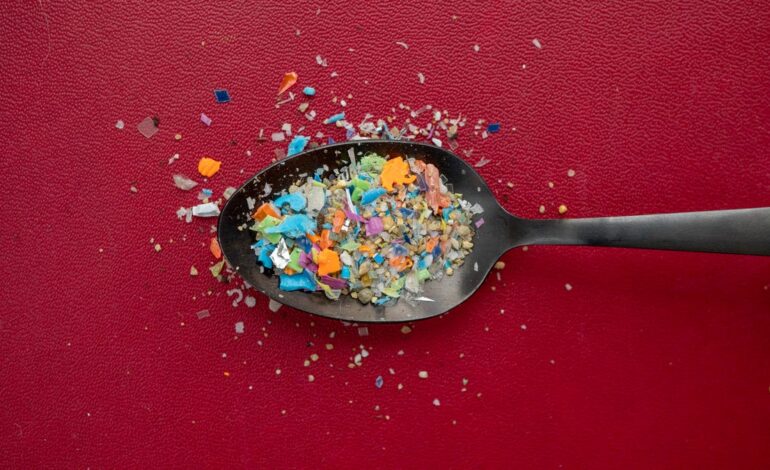Urgent Alert: Microplastics Found in Common Kitchen Items Now

URGENT UPDATE: New studies reveal that microplastics are lurking in your kitchen, potentially entering your body through everyday items. These tiny plastic particles, smaller than 5 millimeters, pose a serious health risk, with alarming findings indicating a direct link to brain damage and other severe health issues.
A February 2025 study highlighted that brain tissue from dementia patients contained up to 10 times more microplastics than tissue from healthy individuals. This shocking revelation underscores the urgent need to reassess our kitchen practices and the materials we use.
Microplastics can be found in common kitchen items, impacting our health through inhalation, ingestion, and touch. Researchers estimate that humans inhale a staggering 22,000,000 micro and nanoplastics annually. These particles have been linked to inflammation, tissue damage, and even increased risks of heart attacks and strokes.
A study from Australia indicates that Teflon-coated cookware releases thousands, if not millions, of microplastic particles during cooking. Even minor damage to such cookware can lead to exposure to over two million microplastic particles per use. As home delivery services proliferate, plastic containers, often used for takeout, add to the problem. These containers leach microplastics into food, especially when heated, raising health concerns.
Surprisingly, microplastics may also contaminate your tea. Research from Spain’s Autonomous University of Barcelona found that plastic tea bags release billions of microplastic particles when steeped. In addition, spices packaged in plastic containers are not immune and have been shown to contain microplastics, increasing the risk of food contamination.
The situation is dire, with eight million metric tons of plastic entering waterways each year, affecting not only our health but also the environment. Plastic straws, ubiquitous in many households, have been found to release hazardous microplastics, raising alarms among health experts.
However, there are ways to combat this crisis. To reduce exposure, experts recommend switching to safer alternatives in your kitchen. Replace plastic utensils with stainless steel or wooden options, which significantly cut down on microplastic consumption. For food storage, opt for glass or ceramic containers instead of plastic, which can leach harmful particles.
Instead of tea bags, consider using loose tea leaves with a stainless steel strainer to avoid microplastic contamination. When it comes to spices, glass packaging is a safer choice to prevent harmful microplastics from seeping into your meals. Ditch the plastic straws for reusable metal or bamboo versions to minimize environmental and health impacts.
Canned food often contains microplastics due to plastic linings. Choose glass-packaged foods or fresh produce to eliminate exposure. Upgrading your cookware to stainless steel or cast iron can also significantly reduce the risk of microplastic ingestion.
THE BOTTOM LINE: Microplastics are infiltrating our kitchens, posing serious risks to human health. With ongoing research revealing new dangers, it is crucial to take immediate action to protect ourselves and our families. By making simple changes in our kitchens, we can greatly reduce exposure to these harmful particles.
Stay informed and share this urgent health alert with friends and family to help combat the growing crisis of microplastic pollution in our everyday lives.






